The Dangerous Instrumentality Doctrine and Florida

Knock Knock… “Who is it?” You ask from behind the door. “The police.” A voice answers. Oops! Your eyes widen as your mind starts to race, wondering what you might have done. Well, it turns out that the car you lent out to your best friend Joe was involved in an accident, injuring a passenger in another vehicle. Now you’re on the hook for the mishap. So, how come you’re liable? Before we get into the details, consider hiring a Sarasota personal injury attorney to help shape your defensive strategy.
What happened? Well, the dangerous instrumentality doctrine happened. If you’re unfamiliar with the principle, you’re on the right page, as this post has you in mind. Let’s dig deeper to unearth the finer details of the doctrine and how it might impact you.
A Definition: The Dangerous Instrumentality Doctrine
The doctrine of dangerous instrumentality is a legal rule unique to Florida. Under this doctrine, the owner of a motor vehicle can be held liable for any injuries caused by the driver’s negligence.
This is true even if the owner was not behind the wheel at the time of the accident. The rationale for this rule is that motor vehicles are inherently dangerous and should only be operated by someone willing and able to do so safely. As a result, owners must exercise care in choosing who they allow driving their car.
If they fail to do so, they may be held responsible for any damages. This doctrine has been a part of Florida law for many years and continues to play an essential role in personal injury cases. It also explains the knock on your door and why you’re in a bind.
Vicarious Liability
The doctrine imposes vicarious liability on the owners of potentially dangerous devices. If someone is injured while using a dangerous tool, the device’s owner may be held liable for the injury, even if they were not personally responsible for the harm caused.
Commonly, the assumption or theory behind this is that the owner of a dangerous device must ensure it is used safely. As such, they are responsible for any injuries due to their use.
Generally, the doctrine of vicarious liability is often applied to hold owners liable for injuries caused by firearms, motor vehicles, and even household items such as knives and power tools. While the doctrine does not always result in liability, it is an essential consideration for any owner of a potentially dangerous tool.
Concerning motor vehicles, the Dangerous Instrumentality Doctrine imposes explicitly strict vicarious liability on the vehicle’s owner. Simply put, everyone whose name appears on the vehicle’s title is held accountable. The law views them as actively involved (as though they were in the driver’s seat) or as though their actions or inactions resulted in the accident.
Application
Under the Dangerous Instrumentality Doctrine, you can be held liable for any damage caused by a vehicle you own. However, for the prosecution to hold you accountable, they must first identify your property interest in the car.
This can be done by showing that you have title to the vehicle or that you are the registered owner. To put it plainly, if your name appears on the vehicle title, you will likely face legal liability. It is also vital to think carefully about the name you place on the title of a vehicle. For instance, if you opt for your teenage daughter’s name on the title, you might expose them to significant legal consequences, including financial liability, before they even reach adulthood.
But generally, once your property interest has been established, the prosecution must prove that you were aware of the risks associated with the vehicle. For example, if you knew that the brakes were faulty and failed to repair them, you could be held liable for any accidents that occur as a result.
Potential Exceptions
Some legal principles have exceptions, letting accused parties off the hook for otherwise perceived wrongdoing. The main exceptions to the doctrine under discussion in relation to motor vehicles are:
The ‘Shop Rule”
This rule allows you to avoid liability for damage after entrusting your vehicle to a valet service, repair shop, or service station. Thus, if the shop’s employee ends up damaging property while driving your car (perhaps for a test drive), you won’t be accountable for their negligence. The rule is based on the idea that the employer has taken reasonable steps to prevent accidents and that it is ultimately the responsibility of the employee to follow safety procedures.
Recent Car Sale
Let’s assume you sell your vehicle, only for it to be involved in an accident before transferring the title to the new owner. In such a case, you can sidestep liability based on what is commonly referred to as the “mere naked title” rule.
As a result, the court may exempt you from responsibility if you can show that you did not have a reasonable chance to transfer the title and that only the buyer had beneficial ownership of the said car. Your injury attorney can help you prepare a defense strategy to that effect.
Vehicle Theft
Sometimes, bad things happen to… Well, strict vicarious liability does not apply if your vehicle is stolen and ends up causing harm to others or damaging property. Hence, you’re unlikely to be held accountable if the stolen car is used negligently or intentionally as a weapon. The point is that you did not permit the driver to use your vehicle- as they stole it. Hence, the dangerous instrumentality doctrine would not apply.
All things considered, the Dangerous Instrumentality Doctrine is designed to hold owners accountable for their vehicles (tools), and it is essential to understand how it works to protect yourself from liability. Besides, you may face legal implications for negligent actions involving your car that ultimately result in an accident in another state, even if you’re not directly responsible.
And if you’re in such a tight spot, it’s advisable to consult our Florida personal injury lawyers to help you navigate the legal issue. To start the process, check us out at https://halelaw.com/ or call us at 941-735-4529 anytime, day or night. Otherwise, the oft-dreaded knock on your door might lead to unexpected consequences.
Hale Law,
2803 Fruitville Road Suite 240 Sarasota FL 34237,
941-735-4529
Follow Us on Social Media
https://www.facebook.com/HaleLawPA
https://twitter.com/GOTOHALELAW
https://www.linkedin.com/company/hale-law-pa/
https://www.youtube.com/channel/UCydReulKeybIpVPdvtc5yFA
https://www.instagram.com/halelawpa/
